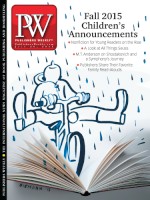Colonial North America serves as the setting for journalist Smith’s first novel, The Constable’s Tale.
Is it true that the book was inspired by your own family history?
A genealogist found that my great-grandfather, Capt. Harry Smith, served his North Carolina community as a volunteer constable. I had never heard of such a thing as a volunteer constable, much less in the 18th century. But it fired my imagination and guaranteed that any fiction I might write based on the thin shadow that remains of Captain Harry would be a murder mystery. But The Constable’s Tale is in no way a reverential piece of ancestor worship. If anything, the contrary is true. Along with what I hope is a satisfyingly told whodunit, my story explores some unvarnished truths, for better and worse, about the South and the rest of the country during those tumultuous times.
What else about the period appealed to you?
The middle of the 18th century is richly rewarding for anyone looking for the real roots of the American experience, as opposed to the mythology that’s grown up around our early days. For me, delving into this period was like shining a flashlight into the now-dark basement of our national history and seeing what is there supporting the rest of the building. Making up a plausible story set in that time, with people both ordinary and extraordinary dealing with their world, was just pure fun.
What were you surprised to learn about it?
The degree to which colonial America was in thrall to consumer goods. The wealthy ordered luxury furnishings and accoutrements from England on a lavish scale. Even the lowliest farm family prized their English dishware and such other finery as they thought they could afford. These things brought touches of grace and style into often hardscrabble lives. I also learned that Americans never have liked to defer gratification. From its earliest days, our country has run on credit. Rich, poor, and in between—planters sometimes would put up their next-year’s crops as collateral to buy more goods. Just about everybody in America owed somebody something, whether their creditors lived in London, Glasgow, or on the next farm.
Have you had other jobs that affected your writing?
One of my first jobs in journalism was covering the D.C. police department for the Washington Evening Star, and one of my first assignments on that beat was an ax murder. The nude body, which I saw, was in a bathtub, and there was blood everywhere. I remember thinking at the time that this would not be a bad way to open a novel.



 Volume 262
Issue 29
07/20/2015
Volume 262
Issue 29
07/20/2015





